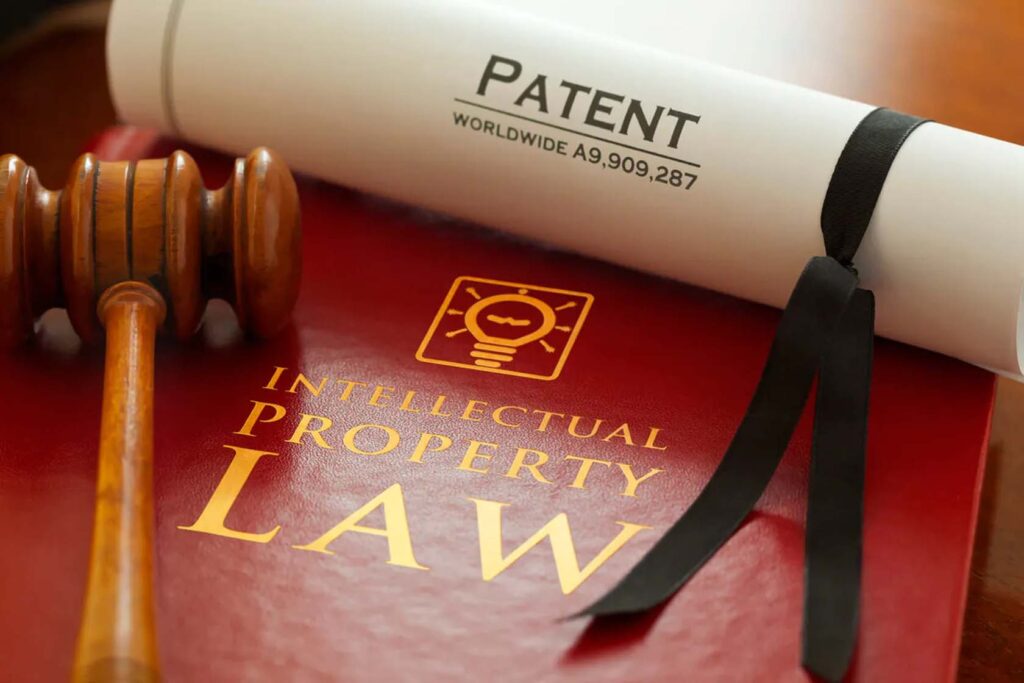In today’s fast-paced digital world, protecting intellectual property and navigating technology laws have become critical for businesses. As innovation drives growth, ensuring ideas, creations, and technological advancements are safeguarded isn’t just a necessity—it’s a strategic advantage. Turkey, with its dynamic economy and growing tech sector, presents unique opportunities and challenges in this field.
We’ve seen how businesses operating in Turkey face a complex legal landscape that requires expert guidance. From patent protection to data privacy compliance, understanding the intricacies of intellectual property and technology law is essential for staying competitive. With the right legal support, companies can confidently innovate while mitigating risks in this rapidly evolving environment.
Overview Of Intellectual Property And Technology Law
Intellectual property rights and technology law are crucial for safeguarding innovation and ensuring compliance in today’s rapidly evolving digital economy. Turkey’s unique legal landscape demands specialized expertise to address these intertwined legal areas effectively.
Importance Of Intellectual Property Rights
Intellectual property (IP) rights protect creations of the mind, such as inventions, trademarks, and copyrights. These rights provide businesses with exclusive control over their assets, fostering innovation and securing a competitive edge. In Turkey, IP protection aligns with global standards, including adherence to international treaties like the TRIPS Agreement and WIPO conventions. Robust IP policies prevent unauthorized use, encourage research investments, and support market expansion strategies.
Examples of protected IP include patented technologies, copyrighted software, and registered brand symbols. Weak enforcement or unclear ownership in these areas can cause revenue loss and hinder a company’s market position. Addressing IP disputes, filing registrations, and monitoring infringements are integral to maintaining compliance under Turkish law.
Role Of Technology Law In Modern Business
Technology law governs issues related to digital innovation, data protection, and the regulation of emerging technologies. Businesses operating in Turkey navigate a regulatory framework shaped by the Personal Data Protection Law (KVKK) and EU’s GDPR alignment, ensuring secure and lawful data processing practices. Adherence to these laws mitigates legal risks and preserves trust among users.
Technology law also covers cybersecurity, e-commerce, and software licensing. For instance, securing vendor agreements or protecting proprietary software falls under this branch of law. As technology permeates all sectors, legal challenges may involve artificial intelligence, blockchain, or fintech innovations. Clear legal guidance enables businesses to adapt, grow, and integrate cutting-edge technologies within the bounds of Turkish regulation.
Understanding The Legal Framework In Turkey
Turkey’s legal framework for intellectual property and technology law provides a robust structure for protecting innovation and ensuring compliance. These laws align with international standards yet present unique aspects businesses must navigate.
Key Regulations Governing Intellectual Property
Turkey regulates intellectual property through primary laws, including the Industrial Property Code No. 6769 and the Copyright Law No. 5846. The Industrial Property Code covers patents, trademarks, designs, and geographical indications, ensuring comprehensive protection for industrial property rights. Patents gain validity upon registration, providing exclusive rights for 20 years to prevent unauthorized use. Trademark protections extend for ten years, with renewal options.
The Copyright Law governs literary, artistic, and scientific works under moral and financial rights. This law grants creators the ability to control usage, distribution, and reproduction. Turkey is a signatory to international agreements like the Berne Convention and the Paris Convention, ensuring cross-border recognition and enforcement of IP rights. Administrative agencies such as the Turkish Patent and Trademark Office and the judiciary play critical roles in infringement cases and dispute resolution.
Technology Law Developments And Challenges
Turkey’s technology law adapts to innovation while managing regulatory challenges. The Personal Data Protection Law No. 6698 (KVKK) aligns local regulations with the EU’s GDPR, imposing obligations on data controllers to process personal data lawfully, ensure security, and respect data subjects’ rights. Breaches result in administrative fines ranging from TRY 29,852 to TRY 5,971,989 in 2023, emphasizing strict compliance.
Emerging technologies, including artificial intelligence and blockchain, raise legal complexities regarding liability, ethical use, and regulation. Turkey’s draft legislations seek to address these gaps, reflecting global trends yet accommodating local needs. E-commerce laws regulate online transactions under the Law on Regulation of E-Commerce, focusing on electronic contracts, consumer rights, and seller obligations.
Cybersecurity remains critical under the Cybersecurity Law and secondary regulations. Compliance with Cybersecurity Framework Programs ensures the protection of systems and data, particularly in critical infrastructure sectors like banking and energy. As technologies evolve, interpreting Turkish law within these contexts becomes vital for businesses navigating this landscape.
Types Of Intellectual Property And Technology Law Services In Turkey
Legal services in intellectual property and technology law in Turkey encompass a range of specialized areas to protect businesses’ innovations, comply with regulations, and ensure competitive advantage.
Patent And Trademark Services
We assist organizations in securing patents and registering trademarks to safeguard their inventions and brand identity. Turkish law, governed by the Industrial Property Code No. 6769, offers protection for patents up to 20 years and trademarks renewable every 10 years. Comprehensive services include patent drafting, filing applications, and managing oppositions or cancellations. For trademarks, we handle searches, registrations, renewals, and infringement disputes to ensure their enduring value.
Copyright And Licensing
We provide legal support to protect copyrighted materials such as literary, artistic, and scientific works under Copyright Law No. 5846. Turkey’s alignment with international conventions, including the Berne Convention, bolsters cross-border protection. Services range from copyright registration and enforcement to managing licensing agreements. Licensing solutions ensure businesses monetize their intellectual property while retaining control over usage rights, critical for sectors like publishing, music, and software development.
Data Protection And Privacy Compliance
We ensure businesses comply with Turkey’s Personal Data Protection Law (KVKK) and align with the EU’s GDPR where applicable. Services include data audits, drafting privacy policies, and conducting impact assessments. Our support mitigates risks of non-compliance, which can result in administrative fines or data breaches. Additionally, we advise on secure data transfer mechanisms and legal strategies to enhance user trust and regulatory adherence across digital platforms.
Choosing The Right Legal Partner In Turkey
Selecting the right legal partner ensures effective navigation of Turkey’s intellectual property and technology law landscape. The complexities of these fields require expertise, local insight, and strategic guidance.
Qualities To Look For In A Law Firm
Identifying key qualities helps us assess a law firm’s suitability for intellectual property and technology cases. Experience is critical; firms with specialized knowledge in Turkish IP laws, such as the Industrial Property Code No. 6769, offer in-depth support. Proven expertise in technology-related laws, including KVKK and GDPR compliance, ensures stronger regulatory adherence.
Transparency in communication simplifies legal proceedings. A reliable firm provides clear advice, regular updates, and tailored solutions. Multilingual capabilities benefit international clients by bridging communication gaps.
Adaptability to emerging technologies strengthens a firm’s value. For instance, firms knowledgeable in AI, blockchain, or e-commerce regulations handle evolving legal challenges effectively. Finally, a track record of successful dispute resolution builds client trust and confidence.
Benefits Of Working With Local Experts
Partnering with local experts enhances our ability to navigate Turkey’s legal framework effectively. Local firms understand domestic regulations like the Copyright Law No. 5846 and offer practical insights into enforcement processes.
Familiarity with courts and administrative bodies accelerates dispute resolution and IP registrations. Local professionals also anticipate region-specific challenges, reducing risks tied to compliance issues. Their connections in Turkey’s business and technology sectors create strategic advantages.
For cross-border transactions, local expertise facilitates adherence to international agreements, such as the Berne and Paris Conventions, while incorporating Turkish legal nuances. This synergy ensures reliable support for both domestic and international operations.
Future Trends And Developments
Intellectual property and technology law in Turkey continues to evolve, driven by digital transformation and advancements in emerging technologies. These changes present opportunities for innovation alongside unique legal challenges.
Impact Of Digital Transformation
Digital transformation reshapes how businesses protect intellectual property and navigate technology laws. Expanding e-commerce, increasing use of artificial intelligence, and advancements in blockchain technologies demand adaptive legal frameworks. Companies integrating these technologies in Turkey must ensure compliance with intellectual property regulations and data protection laws like KVKK. We see heightened focus on protecting digital assets, such as proprietary algorithms, software, and digital trademarks, as businesses digitize operations and engage with international markets.
The rise of smart contracts and decentralized digital technologies has also created new areas for legal regulation. Industries utilizing digital ecosystems must register intellectual assets promptly and manage risks related to cross-border regulatory compliance. Legal experts play a central role in reconciling new technologies with Turkey’s legislative framework and minimizing exposure to potential disputes.
Emerging Challenges In Intellectual Property And Technology Law
Emerging technologies, including artificial intelligence, machine learning, and the Internet of Things (IoT), are blurring the boundaries of existing intellectual property definitions. For example, determining ownership rights over AI-generated content introduces complex legal questions, as current laws don’t explicitly address such scenarios. We anticipate regulatory bodies in Turkey taking steps to clarify legal standards as these technologies mature.
Cybersecurity remains a critical issue as data breaches and unauthorized access to proprietary systems pose significant risks. Protecting trade secrets and sensitive customer data necessitates stricter enforcement of data protection laws under KVKK. Similarly, global coordination for cross-border technology transactions and intellectual property disputes grows more relevant as businesses operate in increasingly interconnected digital spaces. Addressing these challenges requires a proactive approach to legal compliance, dispute resolution, and investment in updated enforcement mechanisms aligned with digital trends.
Conclusion
Navigating the intricate landscape of intellectual property and technology law in Turkey requires a deep understanding of both local and international regulations. As businesses embrace digital transformation and emerging technologies, safeguarding innovations and ensuring compliance have never been more critical.
Partnering with experienced legal professionals provides the strategic advantage needed to address complex challenges and adapt to evolving legal frameworks. By proactively managing risks and protecting intellectual assets, organizations can focus on driving innovation and maintaining their competitive edge in Turkey’s dynamic market.
Frequently Asked Questions
What is intellectual property (IP) and why is it important for businesses?
Intellectual property (IP) refers to creations of the mind, such as inventions, trademarks, and copyrights, that are legally protected against unauthorized use. For businesses, safeguarding IP is crucial to protect innovation, maintain competitive advantage, and prevent revenue loss. Proper IP management ensures legal security and helps build brand credibility in the market.
What are the key intellectual property laws in Turkey?
Turkey’s key intellectual property laws include the Industrial Property Code No. 6769, which governs patents, trademarks, and designs, and the Copyright Law No. 5846, which protects literary, artistic, and scientific works. These laws align with international agreements to safeguard IP rights.
How does technology law impact businesses in Turkey?
Technology law governs areas like data protection, cybersecurity, and e-commerce. Compliance with Turkey’s Personal Data Protection Law (KVKK) and the EU’s GDPR is critical for businesses to mitigate legal risks, build user trust, and maintain competitive operations in the evolving tech landscape.
Why is legal expertise necessary for navigating IP and technology law?
Legal expertise ensures compliance with complex IP and technology laws, aids in protecting innovations, and helps resolve disputes. Expert lawyers offer guidance on trademark registration, data protection, and emerging tech regulations, ensuring businesses mitigate risks and seize opportunities effectively.
What services are typically offered by law firms specializing in IP and technology law?
Specialized law firms in Turkey offer services like patent and trademark registration, copyright and licensing support, data protection compliance, dispute resolution, and advisory services for emerging technologies such as AI and blockchain.
How can a business ensure compliance with Turkey’s data protection laws?
To comply with Turkey’s Personal Data Protection Law (KVKK), businesses must implement clear policies for data collection, processing, and storage. Appointing a data protection officer, conducting regular audits, and aligning practices with GDPR standards further ensure compliance.
What are the main challenges in regulating emerging technologies in Turkey?
Regulating technologies like artificial intelligence, blockchain, and smart contracts poses challenges regarding data ownership, cybersecurity, and legal accountability. Rapid advancements demand constant updates in laws to address new risks and opportunities for businesses.
Why is local expertise important when dealing with IP and technology law in Turkey?
Local experts understand Turkey’s specific regulations, court systems, and enforcement mechanisms. They provide valuable insights into domestic and international compliance, ensuring businesses effectively navigate legal complexities while staying competitive in the market.
How are international agreements relevant to IP protection in Turkey?
International agreements like the Berne and Paris Conventions align Turkey’s IP laws with global standards, enabling cross-border enforcement of IP rights. This helps businesses protect their creations and avoid unauthorized use in international markets.
What trends are shaping the future of IP and technology law in Turkey?
Digitization and emerging technologies like artificial intelligence, blockchain, and e-commerce are shaping IP and technology law. Stricter data protection enforcement, cybersecurity regulations, and global coordination for IP disputes are expected to define future legal trends.



 WeChat
WeChat